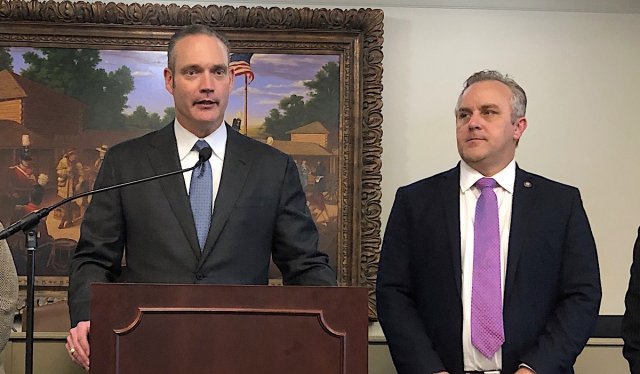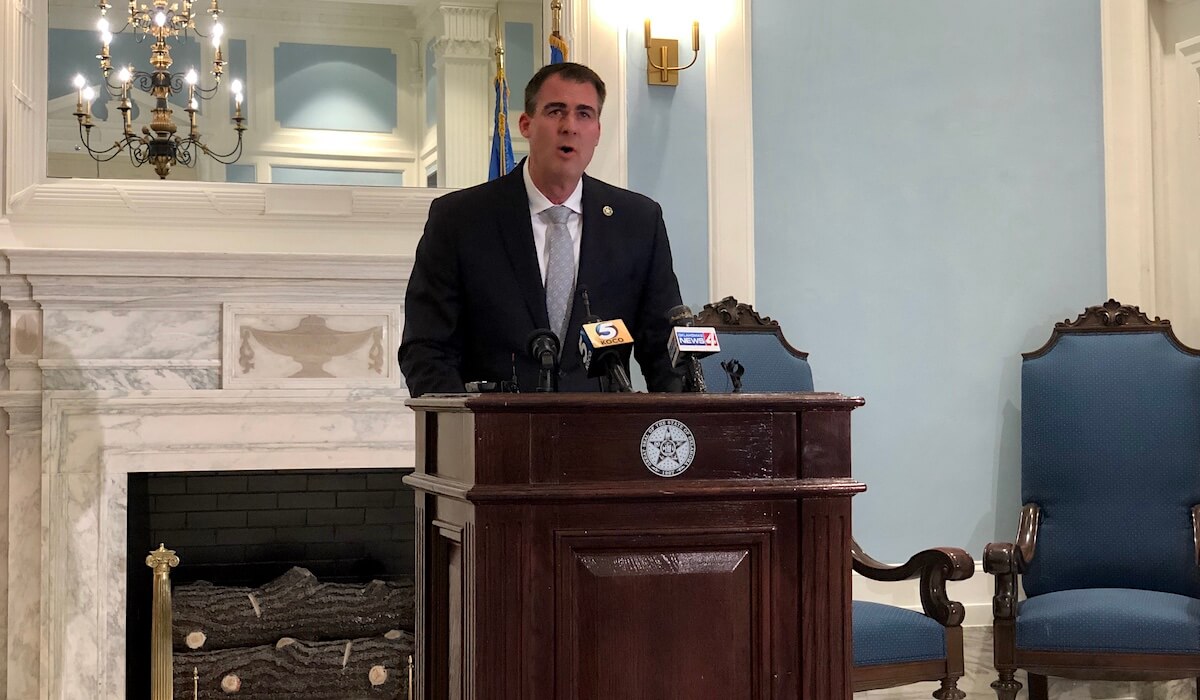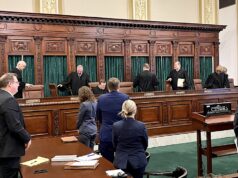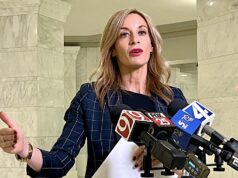
Leaders of the Oklahoma State Senate and the Oklahoma House of Representatives filed suit today asking the state’s Supreme Court to declare that SB 199 has taken effect and that the Board of Equalization must meet to officially certify a revenue failure.
The lawsuit comes as the latest development in a dispute between the Republican-led Legislature and Republican Gov. Kevin Stitt over how to handle a revenue failure for the final months of Fiscal Year 2020. A revenue failure means actual state receipts have fallen below 95 percent of the budgeted estimate for the current fiscal year, which ends June 30.
Stitt cancelled a scheduled Board of Equalization meeting on April 6 in an attempt to retain leverage over the Legislature’s handling of the budget issues.
“Petitioners respectfully request this court issue a writ of mandamus, compelling the Board of Equalization to meet to fulfill its constitutional duty to determine a revenue failure, thereby allowing SB 199, which is now law, to take effect,” states the lawsuit, filed by attorneys Glenn Coffee, Cara Rodriguez and Denise Lawson.
The trio of lawyers filed the suit on behalf of Senate President Pro Tempore Greg Treat (R-OKC), House Speaker Charles McCall (R-Atoka), Senate Appropriations and Budget Chairman Roger Thompson (R-Okemah) and House Appropriations and Budget Chairman Kevin Wallace (R-Wellston).
The lawmakers’ petition (embedded below) argues that the Office of Management and Enterprise Services — overseen by Stitt and his cabinet — declared to the Legislature that a revenue failure existed. The Legislature responded by drafting three measures to tap state reserve accounts and avoid agency budget cuts.
On April 6, the House and Senate donned personal protective equipment and returned to the Capitol and passed those three bills addressing the Fiscal Year 2020 revenue failure. In the middle of that process, Stitt went to House Speaker Charles McCall’s office out of frustration that lawmakers had specified an amount between $240,000 and $1 million would not be filled for the governor’s Digital Transformation Fund, which received a $15 million total appropriation last year.
Stitt responded by canceling the day’s 1 p.m. meeting of the Board of Equalization, which he chairs and includes six other statewide officials tasked with certifying state revenue estimates. Days later, he signed two of the three bills — leaving SB 199 untouched — and told reporters that legislative leaders had broken a deal he believed they had.
RELATED
Stitt signs two of three bills to avoid April cuts, blames #okleg for ‘politics’ by Tres Savage
“We had a deal with the Legislature to fully fund state government for April, May and June,” Stitt said. “House leadership wanted to use this time to play Washington D.C. politics to sneak in some last-minute changes while Oklahomans are hurting.”
Thompson and Wallace responded with their own press conference, arguing that Stitt’s version of events was inaccurate.
“The cuts were not snuck into the bill. We’d been having conversations through budget negotiations with his representative,” Wallace said. “What I’m really concerned about is that maybe the information and communication within the budget negotiations were not getting delivered back to the governor. I can’t answer for that. I can tell you that we’ve been having discussions about the funds and digital transformation for quite a few weeks.”
In today’s court filing, the lawmakers argue that they have “no other remedy” than a lawsuit to address the situation.
“First, the Legislature cannot call a meeting of the [Board of Equalization] to order and has no other remedy available to it,” the suit states. “And second, the board — and Gov. Stitt specifically — have a plain legal duty to convene.”
The legislators also argue that Article 6, Section 11 of the Oklahoma Constitution specifies that SB 199 took effect even without Stitt’s signature owing to his decision not to veto it. The section notes:
If any bill or resolution shall not be returned by the governor within five days (Sundays excepted) after it shall have been presented to him, the same shall be a law in like manner as if he had signed it, unless the Legislature shall, by their adjournment, prevent its return, in which case it shall not become a law without the approval of the governor.
“As SB 199 is now law, the Board of Equalization must meet to determine a revenue failure so that the conditions precedent to the law’s fulfillment may be triggered,” the lawmakers’ suit states.
On SB 199’s page on www.oklegislature.gov, the bill’s latest status update from Monday, April 13, reads: “Becomes law without governor’s signature.”
SB 199 requires a Board of Equalization-certified revenue failure to authorize transfers of funds intended to fill agency budgets.
Baylee Lakey, communications director for Stitt, released a statement later in the day.
“The governor and his senior staff members are all at the Governor’s Solution Task Force headquarters working on the state’s comprehensive response to COVID-19 and have not been able to fully review the petition,” Lakey said.
Read the full court filing from legislative leaders
 Loading...
Loading...
(Update: This story was updated at 4:27 p.m. to correct the spelling of Cara Rodriguez’s name. It was updated again at 5:15 p.m. to include Lakey’s statement.)






















